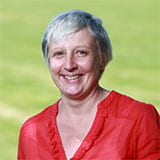SEED projects 2018 – He vaka moana: Navigating Māori and Pasifika student success
Decolonising the curricula – sharing understanding of Māori and Pasifika values
Prof Dory Reeves ( Creative Arts and Industries)
This teaching innovation project is about understanding how Pasifika students relate to and understand the core Māori values of rangitiratanga,(chieftainship), mana (prestige) and kaitiakitanga (guardianship) and to identify the core values for Pasifika students studying planning and architecture.
We hoped to seamlessly apply for the necessary ethics approval and extend the Te Whaihanga ethics and this happened. Dr Vincent Malcolm-Buchannan was able to complete both sets of ethics applications. We now have a model ethics application for this kind of talanoa (discussion) project.
We worked flexibly as a team. The ethnographic methodology (applying the talanoa to generate discussion with participants) incited discussion and in-depth reflection. Two talanoa sessions were planned. The first was with Tuākana students from Urban Planning at the University of Auckland. The students contributed to a very extensive discussion lasting three hours. The refreshments provided were appreciated as well as the koha (gift).
The second talanoa session with Pasifika employees from Auckland Council in the Resource Consents Department allowed employees to reflect on Māori responsiveness courses that they had undertaken at Council and compare what they had learned from their tenure of study of Māori planning at university. Employees were able to reflect on content that they had been taught and identify knowledge gaps.
It will take time for the findings of this project to become integrated into discussions about the development of the curricula but they provide a very useful contribution to this process. This project links to, carries forward, and widens the scope of a national Te Whaihanga project, Ako Aotearoa. From talanoa discussions it became apparent that the core course lectures lack in learning and understanding of Pacific and planning. There is some anticipation that in the future, planning courses could offer an insight to Pacific planning both in the Pacific and here in Aotearoa. The talanoa session identified that the Pacific population is continuing to grow, and this will impact on the future workforce. How do we plan for that? This initiative can serve as an excellent medium to generate discussions within the Faculty in terms of whether offering courses into Pacific and planning could be a plausible opportunity in the near future.
